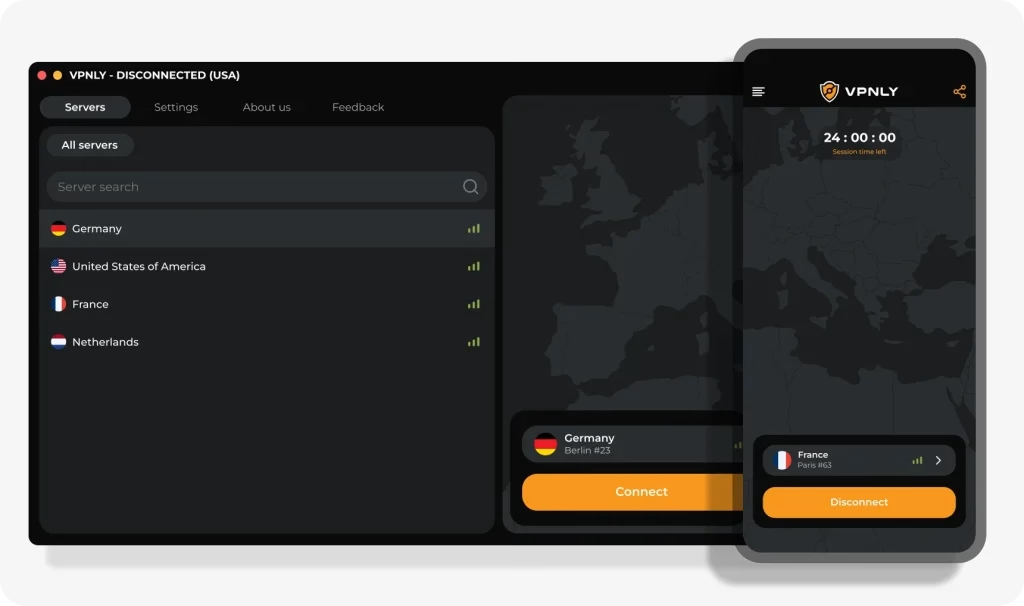In today’s interconnected world, safeguarding your digital footprint is critical. Free VPNs (Virtual Private Networks) offer a practical solution for users seeking privacy, security, and unrestricted internet access without financial commitment. Let’s explore their benefits and how they work, using VPNLY as an illustrative example.
What Is a VPN, and Why Does It Matter?
A VPN creates a secure, encrypted connection between your device and the internet. It serves two primary purposes:
- Privacy Protection: By masking your real IP address, a VPN prevents websites, advertisers, and internet service providers (ISPs) from tracking your location or browsing habits.
- Data Security: Encryption ensures sensitive information (like passwords or bank details) remains unreadable to hackers, especially on unsecured networks.
Free VPNs like VPNLY.COM provide these core features at no cost, making online safety accessible to everyone.
Key Advantages of Free VPNs
1. Privacy for All
Free VPNs democratize privacy. For example, students, travelers, or casual users can anonymize their browsing without subscriptions. Reputable providers like VPNLY enforce no-logs policies, meaning they don’t store records of user activity—ensuring even the VPN provider can’t monitor you.
2. Securing Public Wi-Fi
Public networks (cafés, airports) are hotspots for cyber threats. A free VPN encrypts your connection, shielding data from eavesdroppers. For mobile users, apps like VPNLY’s Android version simplify this process with one-tap protection.
3. Bypassing Geo-Restrictions
Many websites and streaming platforms limit content by region. A VPN lets you “virtually relocate” by connecting to servers in other countries. While free services may have fewer server options than paid plans, they often suffice for accessing region-locked content or circumventing censorship.
4. Cost-Effective Accessibility
Free VPNs remove financial barriers, allowing users to test essential features (encryption, IP masking) without commitment. Some, like VPNLY, even offer unlimited bandwidth, making them viable for daily use.
Addressing Common Concerns
Are Free VPNs Safe?
While not all free VPNs are trustworthy, reputable providers prioritize transparency. Look for:
- No-logs policies (ensures your data isn’t stored).
- Strong encryption standards (e.g., AES-256).
- Transparent data practices (avoid services with vague privacy policies).
Speed and Reliability
Historically, free VPNs struggled with slow speeds due to overcrowded servers. However, modern providers optimize their networks for performance. For instance, VPNLY balances server loads to maintain reliable speeds for browsing, streaming, and video calls.
How to Use a Free VPN Responsibly
- Choose a Reputable Provider: Research the company’s privacy practices and user reviews.
- Limit Sensitive Activities: Avoid accessing highly sensitive accounts (e.g., banking) on free services unless they’re explicitly trustworthy.
- Update Regularly: Ensure your VPN app is up-to-date to benefit from security patches.
A Tool for Digital Empowerment
Free VPNs are not a one-size-fits-all solution, but they play a vital role in making online privacy and freedom accessible. By encrypting data, masking identities, and bypassing restrictions, they empower users to navigate the internet securely—regardless of budget.
For those interested in exploring these tools, services like VPNLY offer a user-friendly starting point. Their Android app, available for download, demonstrates how free VPNs can simplify privacy without compromising ease of use.
In an era where digital rights matter, free VPNs remind us that security and accessibility need not be mutually exclusive.

